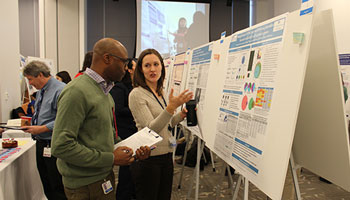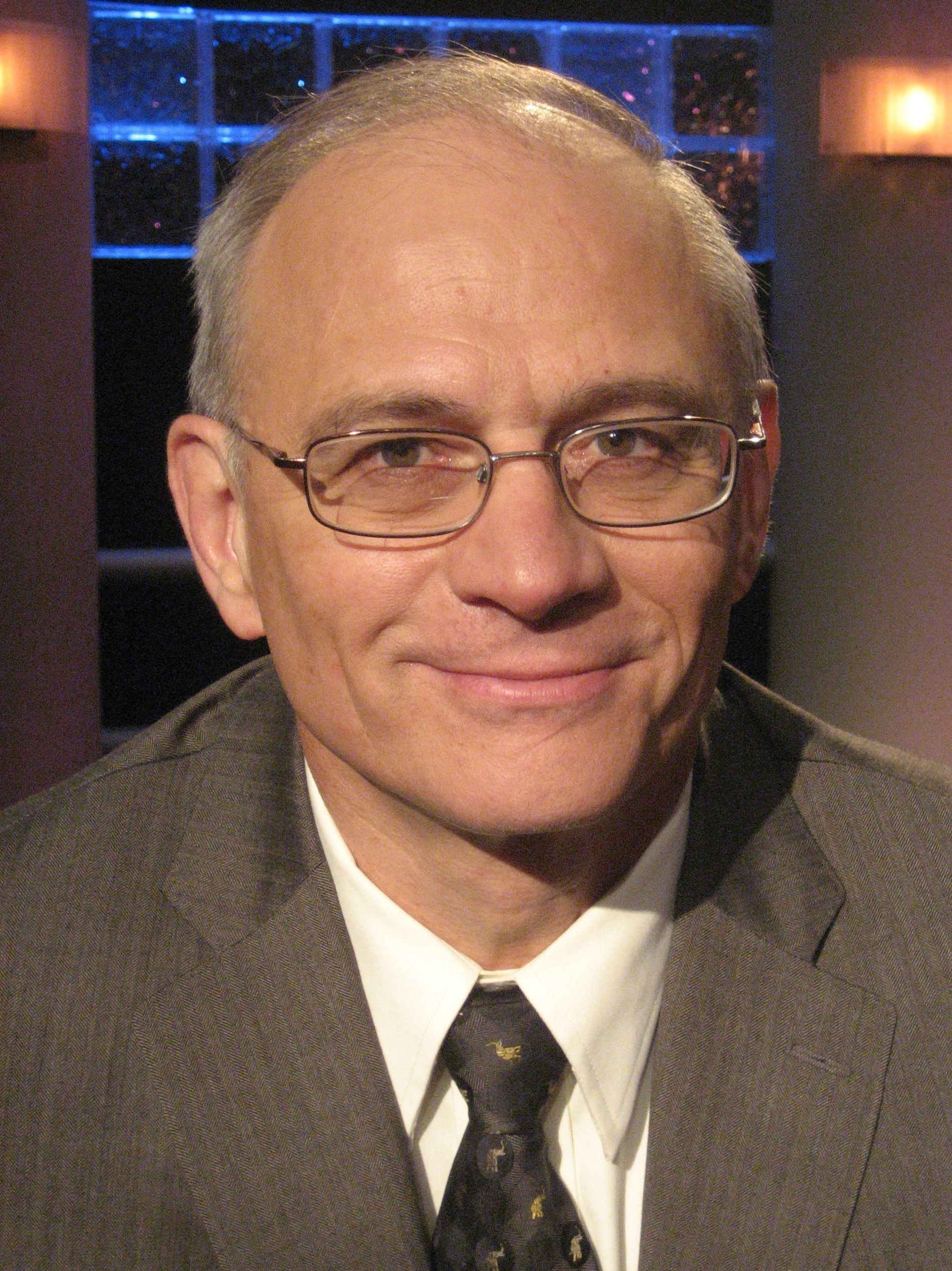Event Information

This year marks the 32nd anniversary of CHOP Research Poster Day, an annual celebration of the groundbreaking research happening throughout Children's Hospital. This event includes poster presentations from trainees and research staff who will share their exciting discoveries with the CHOP community. Please join us in acknowledging the valuable contributions of the next generation of pediatric scientists and clinicians.
General Information
Abstract submission is required for displaying a poster at this event. Please note that we will not be able to accommodate presenters who have not submitted an abstract.
- A maximum of 175 abstracts will be accepted on a first-come, first-served basis. Submissions on all scientific topics, including those outside of this year's theme, are welcome.
- Abstract submission will open on Monday, March 3, 2025. The deadline is 11:59pm on Saturday, April 5, 2025.
- Participants may only submit one abstract.
- Science Slam Competition: Poster Day presenters are invited to have their abstracts reviewed for consideration for the 2025 Science Slam competition. Selected abstract presenters will be invited to give Science Slam flash talk presentations during the Scientific Symposium on Thursday, May 8th, with the opportunity to be awarded a monetary prize. We welcome submissions on all scientific topics, including those outside of this year's theme. You will be invited to opt into the Science Slam competition when you submit your CHOP Research Poster Day abstract.
Eligibility
- All CHOP-based researchers-in-training and research staff are welcome to submit an abstract.
- Please Note: Principal Investigators, Instructors, Attending Physicians, and non-CHOP researchers are not eligible to display a poster.
- Abstracts must be scientific method-driven research, including providing data from experimental results.
- Questions on eligibility should be submitted to ATOP@chop.edu.
Poster Guidelines
- Work presented at previous scientific events may be submitted.
- Presenting authors should submit the abstract, assemble the poster, and present the poster on the day of the event.
- Posters must be mounted on 60" x 40" boards (boards and easels will be provided) and must fit within this 60" x 40" area. Landscape is the preferred poster orientation.
- Pushpins will be provided for poster mounting.
- Poster presentations will be divided into 3 sessions this year.
- Poster Session A: Tuesday, May 6th from 2:30 - 4:00pm
- Poster Session B: Wednesday, May 7th from 2:30 - 4:00pm
- Poster Session C: Thursday, May 8th from 9:30 - 11:00am
- Participants can indicate their preferred poster session time when submitting their abstract. Selected time slots are not guaranteed.
- While not required, Research Creative Services is available to assist with poster design or printing. Please contact them at researchcomm@chop.edu. A poster template is available here.
Judging
- All participants submitting an abstract will be judged. There will be no display-only option.
- Participants choose from one of two tracks at the time of abstract submission: Patient-oriented (clinical, human subjects) or Laboratory-based (basic, wet bench). Translational studies could fall into either category at the discretion of the abstract author.
- Judging and prizes will be uniform for each track and multiple cash prizes of $250 will be awarded.
- Each participant is evaluated on scientific merit, visual presentation, and oral presentation. Judges are asked to select one presenter from his or her assigned posters to be considered for an award. Judges are required to visit every poster and are encouraged to provide feedback to participants during the judging period.
- A $1,000 medical device development travel grant will also be presented to the participant displaying the most promising research related to a pediatric medical device, sponsored by the FDA supported Pennsylvania Pediatric Medical Device Consortium (PPDC) at CHOP.
- Judging will be split into three sessions:
- Session A Judging: Tuesday, May 6th from 2:30 - 4:00pm
- Session B Judging: Wednesday, May 7th from 2:30 - 4:00pm
- Session C Judging: Thursday, May 8th from 9:30 - 11:00am
- You will be notified of your time slot after abstract submission closes. The reception and poster awards ceremony will be held on Thursday, May 8th at 4:30pm in the Hub.
Poster session questions can be directed to the Office of Academic Training and Outreach Programs at ATOP@chop.edu.
The theme of the 2025 symposium is Frontier Programs and will highlight the remarkable breakthroughs achieved over the last decade by CHOP researchers. Mark C. Fishman, MD, Professor of Stem Cell and Regenerative Biology, Harvard University, will provide the first keynote address. William A. Gahl, MD, PhD, Director of the NIH Undiagnosed Diseases Program will provide the second keynote address.
Featured Speakers
Keynote

Mark C. Fishman, MD
Professor, Harvard Department of Stem Cell and Regenerative Biology
Mark C. Fishman, MD, is Professor of Stem Cell and Regenerative Biology in the Harvard Faculty of Arts and Sciences, and a cardiologist and founder of the Pathways Clinical Service at the Massachusetts General Hospital (MGH).
Through the first large-scale genetic screen in zebrafish, in the 1990’s Fishman’s lab discovered many of the pathways that guide vertebrate organ development, especially of the heart and vascular system. Additionally, they helped to develop the genomic infrastructure which permitted cloning of the relevant genes, and showed its relevance to human disease and to screening for potential therapeutics. These all helped to make the zebrafish a cornerstone of modern developmental biology.
From 2001-2016, Fishman was the founding President of the Novartis Institutes for BioMedical Research (NIBR), during which time NIBR discovered and brought through successful clinical trials 90 new medicines in more than 120 indications. The approach developed, fousing upon rare and heritable disorders, and introducing what became the first modern cell and gene therapy approved (around CART cell immunotherapy), helped to change pharmaceutical discovery paradigms.
Since returning to Harvard, his research focus has turned to the autonomic nervous system, using the zebrafish to dissect heart-brain interactions at all levels from synapse to behavior. He has, with Professor Melton, inaugurated a new combined Harvard Masters in Biotechnology/MBA program. Fishman is a founder of AditumBio and serves on the Boards of Directors of Beam Therapeutics and Skyline Therapeutics.
Fishman graduated from Yale College and Harvard Medical School, trained in cardiology and was Chief of the Cardiology Division and Director of the Cardiovascular Research Center at Harvard Medical School and the MGH. In addition to his publications in developmental biology and drug discovery, Fishman is the author of the medical textbook, Medicine, and of the book Lab: Building a Home for Scientists, on the history and architectural design of buildings for scientists. Fishman is a member of the National Academy of Medicine and American Academy of Arts and Sciences

William A. Gahl, MD, PhD
Senior Investigator, National Human Genome Research Institute Director of NIH Undiagnosed Diseases Program
Senior Investigator of Medical Genetics Branch
Dr. William A. Gahl graduated from the Massachusetts Institute of Technology and earned his M.D. and Ph.D. from the University of Wisconsin. He served as pediatric resident and chief resident at the University of Wisconsin hospitals and completed clinical genetics and clinical biochemical genetics fellowships at the NIH. Dr. Gahl elucidated the basic defects in cystinosis and Salla disease and helped bring cysteamine to new drug approval by the Food and Drug Administration as the treatment for cystinosis. He has published over 650 papers, reviews, book chapters, and editorials, trained 42 biochemical geneticists and cultivated international experts in Hermansky-Pudlak syndrome, alkaptonuria, Oculocerebrorenal Syndrome of Lowe, Menkes disease, Congenital Disorders of Glycosylation, Griscelli Syndrome, Gray Platelet Syndrome, Joubert Syndrome, polycystic kidney disease and other ciliopathies, Hutchinson-Gilford Progeria, GNE myopathy, oculocutaneous albinism, sialuria, and free sialic acid storage disorders. His group identified the genes responsible for Hartnup disease, Gray Platelet Syndrome, two types of renal Fanconi syndrome, 3-methylglutaconic aciduria type III, a new neutrophil defect, and many other disorders. In 2008, he established the NIH Undiagnosed Diseases Program (UDP), which has made more than 350 rare disease diagnoses and discovered 30 new genetic diseases. Dr. Gahl expanded the UDP to a national Undiagnosed Diseases Network and a worldwide Undiagnosed Diseases Network International. He established American Board of Medical Specialties certification for medical biochemical genetics. Dr. Gahl received the Dr. Nathan Davis Award for Outstanding Government Service from the AMA, the Service to America Medal in Science and the Environment, the EURORDIS Lifetime Achievement Award, and numerous other awards. In 2019, he was elected to the National Academy of Medicine.
The Networking Reception on May 7th, 2025 is generously sponsored by the CHOP Omics & Big Data Initiative.
The CHOP Omics & Big Data Initiative is bringing us closer to our vision to:
- Lead in developing new omics-based diagnostics and therapeutics for children
- Be the destination of choice for the diagnosis and treatment of complicated diseases using omics technology
Our vision focuses on further developing, accelerating, and optimizing our omics expertise and infrastructure through the accomplishment of six strategic objectives:
- Accelerate development of an industry-leading data platform and sharing model
- Expand and accelerate basic and translational research and CHOP-sponsored clinical trials
- Create a more integrated precision medicine clinical environment
- Optimize in-house diagnostic portfolio to focus on differentiated services & financial stewardship
- Introduce new training and career development programs to attract and retain the best talent
- Pursue strategic external partnerships to accelerate clinical and research efforts
